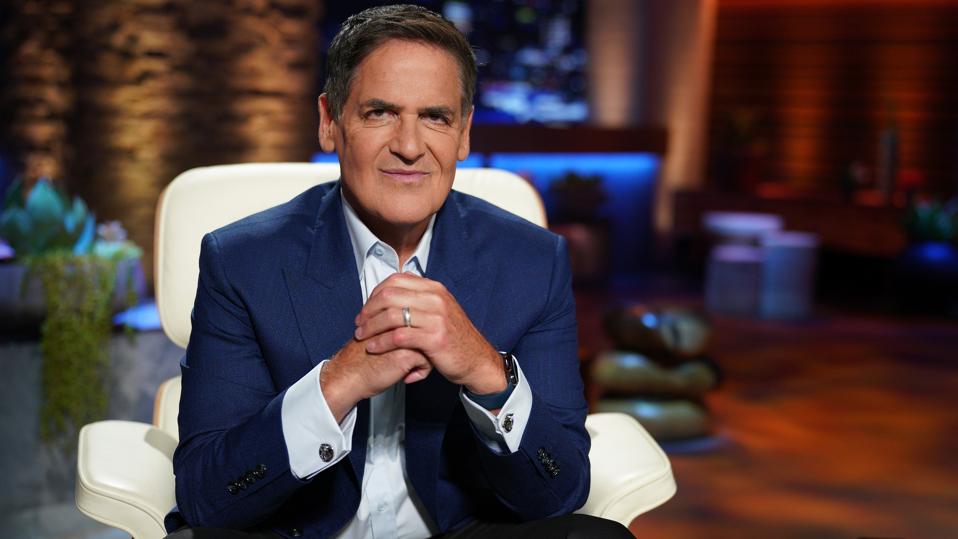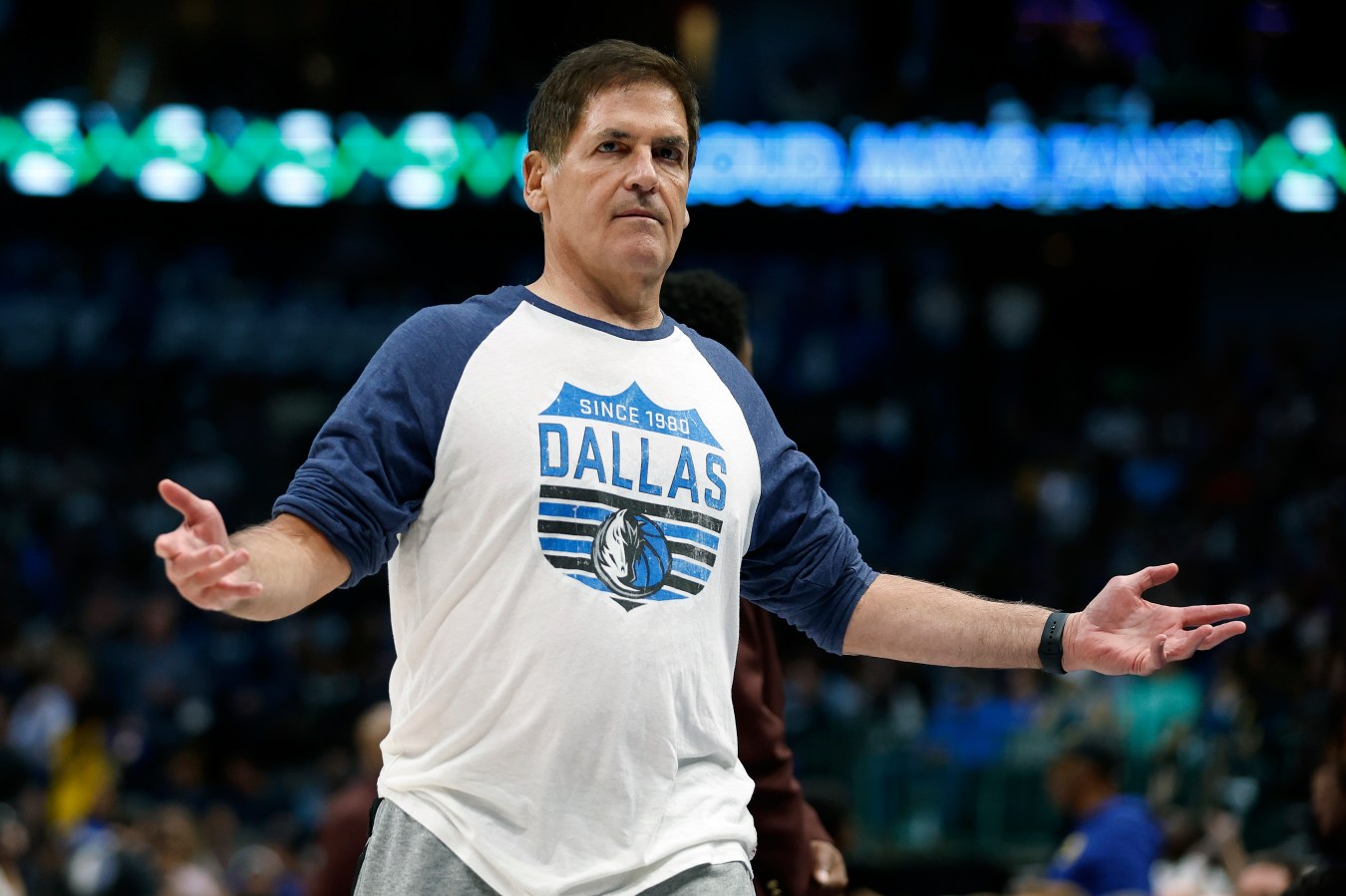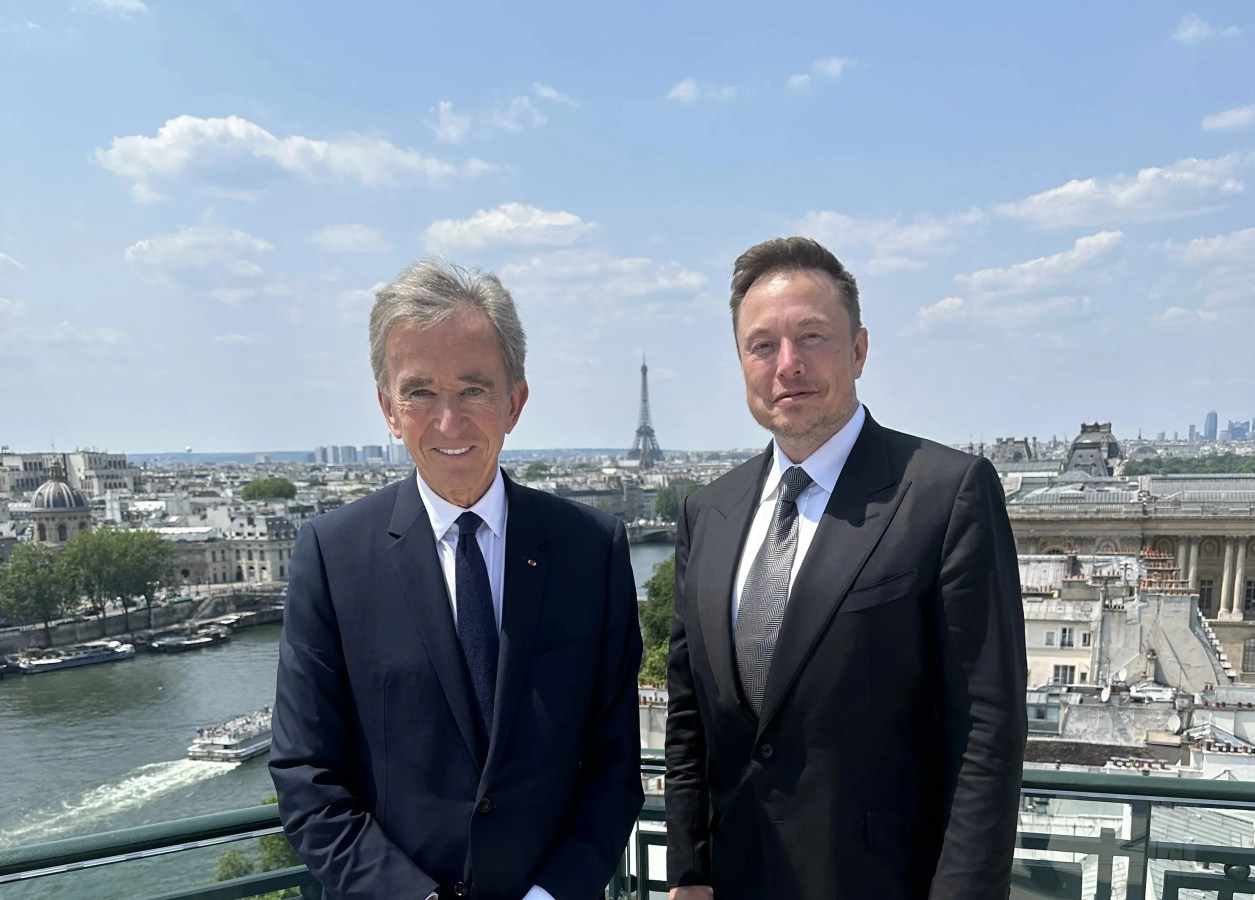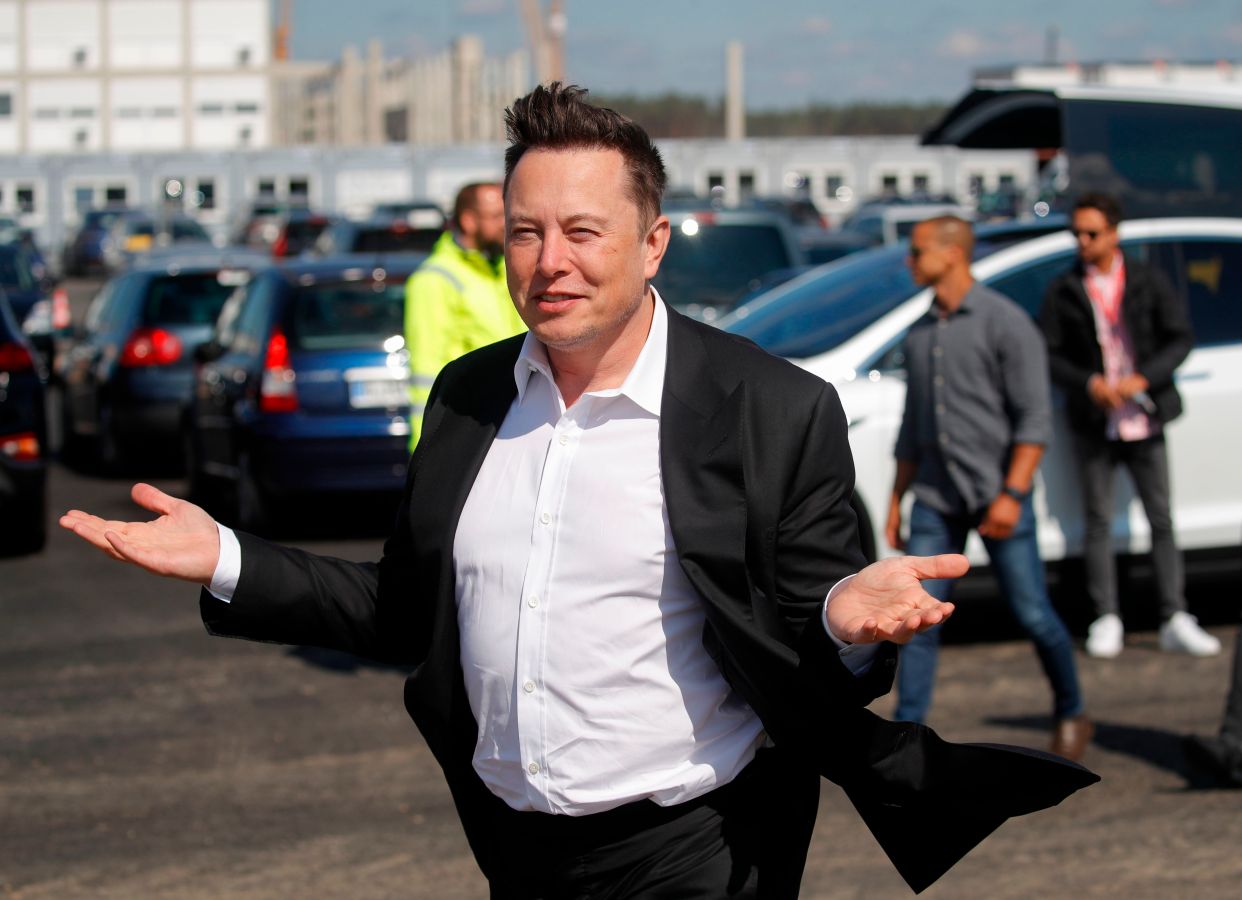The billionaire opened up to Forbes last year about his plans for a big shake up, citing changes in his family life.

Mark Cuban photographed by Guerin Blask for Forbes in September 2022.Guerin Blask/The Forbes Collection
Guerin Blask/The Forbes Collection
One of America’s most famous entrepreneurs, billionaire Mark Cuban is best known for a couple of things.
The first is his 12 year run as a blunt yet benevolent star on Shark Tank, the hit business show that’s led him to pour nearly $30 million into hundreds of startups. Then there’s his role as an NBA owner – the loud-mouthed Cuban has become a courtside staple since buying the vast majority of the Dallas Mavericks in 2000.
In recent days, however, the 65-year-old investor – who is worth an estimated $6.2 billion, according to Forbes – has made a splash with the sudden revelations of his plans to step away from both. Cuban announced on a podcast last week that he will leave Shark Tank after the ABC show’s 16th season wraps up next year, confirming plans he first indicated to Forbes last year. Meanwhile, multiple reports published on Tuesday said Cuban is working on a deal to sell a majority stake in the Mavericks to fellow billionaire Miriam Adelson and the Adelson Family. The sports team, which Cuban bought 85% of for $280 million in 2000, will reportedly be valued in the range of $3.5 billion. Cuban plans to sell most of his stake, but will hold onto some and will retain full control over basketball operations, according to multiple reports. (Cuban did not respond to requests for comment for this article.)
Related
The dual announcements seemed to take many by surprise (“It Looks Like Mark Cuban Doesn’t Want To be Mark Cuban Anymore,” Business Insider titled a Wednesday article about the shakeup), and had some wondering if he was gearing up for a presidential run. After all, he seriously considered a run in 2020 but decided against it after attracting less than 25% of the vote in a national poll he commissioned. “It’s out of the question,” he told Forbes last year about running for president or any office, adding that “I’m not going to run because of my family.” He said the same thing to NBC News on Wednesday, reiterating again that he is not planning to run for president in 2024.
So what will he do? Cuban previously offered some insight to Forbes about the reasons why he was considering some drastic changes in his professional life. Speaking for a September 2022 magazine cover story, the billionaire revealed that he was considering leaving “Shark Tank” because his busy schedule was no longer matching up with that of his three teenage children, with whom he was trying to spend more time.
After his eldest daughter, Alexis Cuban, started at Vanderbilt University in September 2022, the billionaire said that his other children – Jake and Alyssa, were 13 and 16 years old, respectively, Cuban said at the time of the interview – were on different schedules for their school breaks, making it difficult to balance filming for Shark Tank and attending Mavericks games. “You know, when they [my kids] move around, plus basketball season too, I can’t take two weeks off and it turns out to be playoffs,” Cuban told Forbes in previously unpublished comments. “So I’m trying to figure out that balance, that’s what it comes down to.”
Cuban told Forbes last year that he had been trying to prioritize his family more. “I haven’t always done a great job of it,” he said. “But I mean, it’s hard. It’s hard. Even if you’re not doing a billion things, it’s difficult.”
That’s not to say that this is the only reason Cuban may be selling the team. There’s a financial incentive, too. As Forbes’ reporting has shown, the value of NBA teams has ballooned in recent years. An October 2023 Forbes analysis showed that the average NBA team was worth $3.85 billion, an increase of 35% from a year prior and 75% higher than in 2019. While valuations are heading skyward with no indication that they will stop, it’s unclear how long the run will last. Cuban, famously, has a history of predicting bubbles. He made his fortune selling Broadcast.com, an internet sports radio outfit, to Yahoo for $5.7 billion at the peak of the dot-com bubble in 1999. A few years later, Yahoo shuttered the service. Furthermore, the cash from selling a big chunk of the Mavericks could free up Cuban for other big investments.
Related
The billionaire does not appear to have made any public comments about his motivations for selling the team. Cuban did not reply to a request for comment from Forbes about why he is selling now.
To be sure, even without Shark Tank and majority ownership of The Dallas Mavericks, Cuban seems set to stay busy. NBA reporter Marc Stein and The Associated Press both reported that the deal to sell the Mavericks, which is currently being vetted at the league level, would leave Cuban with some ownership stake and would enable him to retain operational control of the team’s basketball dealings.
Outside of the Mavericks, Cuban has been focusing on Cost Plus Drugs, the public benefit corporation he started in January 2022 with Dr. Alex Oshmyansky which aims to lower prescription drug prices. Forbes estimated last year that Cost Plus, which sells generic drugs with a flat 15% markup (plus $8 for shipping and fees), had booked at least $25 million in sales from its more than 1 million customers during the first nine months of the year. The company has since doubled its customer base to over 2 million and forged new partnerships–including pharmacies at major grocery store chains like Kroger, FredMeyer and King Soopers, which all accept prescription benefits cards from Cost Plus Drugs, and health plans like Capital Blue Cross and Select Health.
Cost Plus Drugs is not the only company targeting cheaper generics. In fact, the competition seems to be growing. Earlier this month, healthcare insurance giant Cigna Group announced plans to start selling drugs using a “cost plus” model similar to Cuban’s firm.
Though Oshmyansky runs the company’s day-to-day operations as CEO, Cuban, who tweets and speaks frequently about Cost Plus Drugs, appears to remain closely involved. In September, Cuban was listed as one of seven co-authors on a JAMA Internal Medicine study led by University of Texas researchers that found significant price disparities for services offered by a sampling of 60 hospitals depending on how patients asked for price information. The study found differences from the self-posted online cash prices for imaging and other healthcare services at 26% of the hospitals if patients called and asked over the phone. “At best, such erroneous prices may be amusing, but at worst, such errors may trigger further public annoyance with and distrust of our healthcare system,” the study noted.
“If we get it right, [this] will be the most impactful thing I’ve ever done,” Cuban said of Cost Plus Drugs in the September 2022 interview. Cuban’s daughter, Alexis, is a “paid intern” at Cost Plus Drugs in Dallas, Texas, according to her LinkedIn profile.
Cuban’s other focus has been offering behind the scenes guidance to entrepreneurs. Forbes interviewed dozens of Shark Tank companies backed by Cuban last year and many reported being pleasantly surprised by the amount of guidance offered by their celebrity judge after filming ended. Kressa Paterson, the founder of Shower Toga who got an $40,000 investment from Mark Cuban in exchange for a 25% stake on Shark Tank’s Season 10, said she corresponds weekly with Cuban. His team helped organize a donation campaign during the Covid-19 pandemic when she wanted to give away her product – a privacy slip that allows users to shower on the go – to hospitals. He also contributed to a donation to migrant shelters at the U.S.-Mexico border, despite all this putting her company in the red. “I didn’t expect Mark to be like ‘Let’s pay for this,’” said Peterson. “He’s not just there to fund all my philanthropic efforts, that’s not his job.”
Even some entrepreneurs who sent Cuban cold pitches outside of the show said they receive regular support from the celebrity billionaire. “He remains probably the most responsive person I’ve never met,” Tim Ellis, the cofounder and CEO of reusable rocket company Relativity Space told Forbes in an interview last year. Ellis sent an email to Cuban in 2015 and the billionaire invested $500,000 in Ellis’ company, which was last valued by investors at $4.15 billion in a June 2021 fundraising round, according to Pitchbook.
Forbes reached out to Cuban and both entrepreneurs to see how the news of him stepping back from Shark Tank will impact his involvement but didn’t hear back yet. It seems unlikely that Cuban will fully step away from his work with entrepreneurs. “To me it’s the sport I get to compete in and I get to be really good at,” Cuban said in 2022 of vetting cold pitches from entrepreneurs. “I’ll be 110 years old still doing whatever is the equivalent 50 years from now of responding to email.”
Read Forbes’ 2022 cover story on Mark Cuban for more on the billionaire’s life and legacy.
This story was first published on forbes.com and all figures are in USD.




